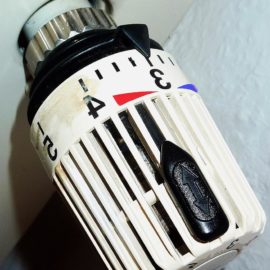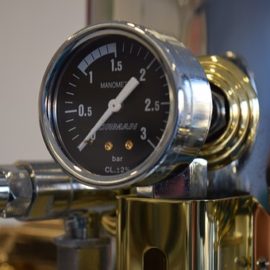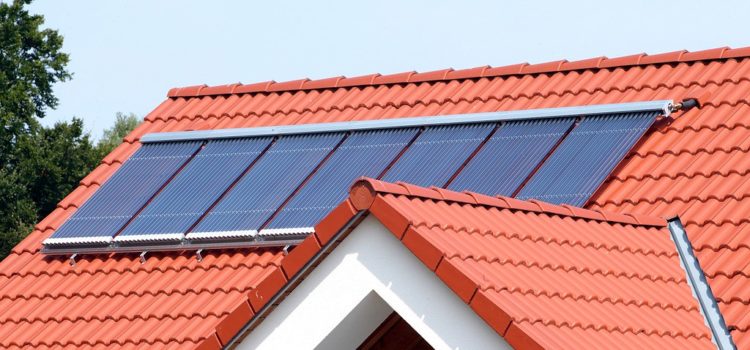
Summary
– Presentation of solar thermal air conditioning
– Different solar thermal air conditioning cycles
– Advantages of solar air conditioning: environmentally friendly air conditioning!
– Disadvantages of air conditioning with solar thermal panels
– Installation of an air conditioner with thermal solar panels
– Price of a solar air-conditioning system
There are two types of solar air conditioning: photovoltaic solar air conditioning and solar thermal air conditioning. This post will deal with air conditioners with solar thermal panels. This is an absorption or adsorption air conditioner, so we talk about thermal compression.
Presentation of solar thermal air conditioning
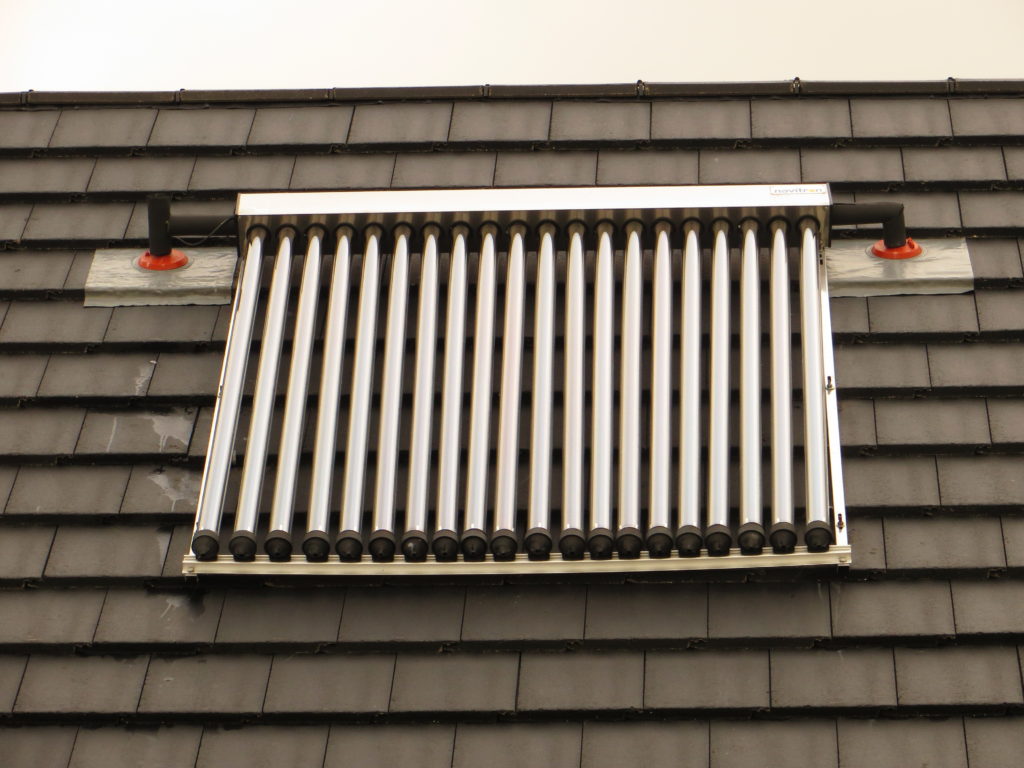
This time there is no longer any need for electricity (except for circulators), mechanical compression is replaced by thermal compression created by the rise in temperature of the fluid inside. The heat comes from thermal solar panels. This process produces cold air during summer and warmth during winter by using the fluid contained in the air conditioning unit.
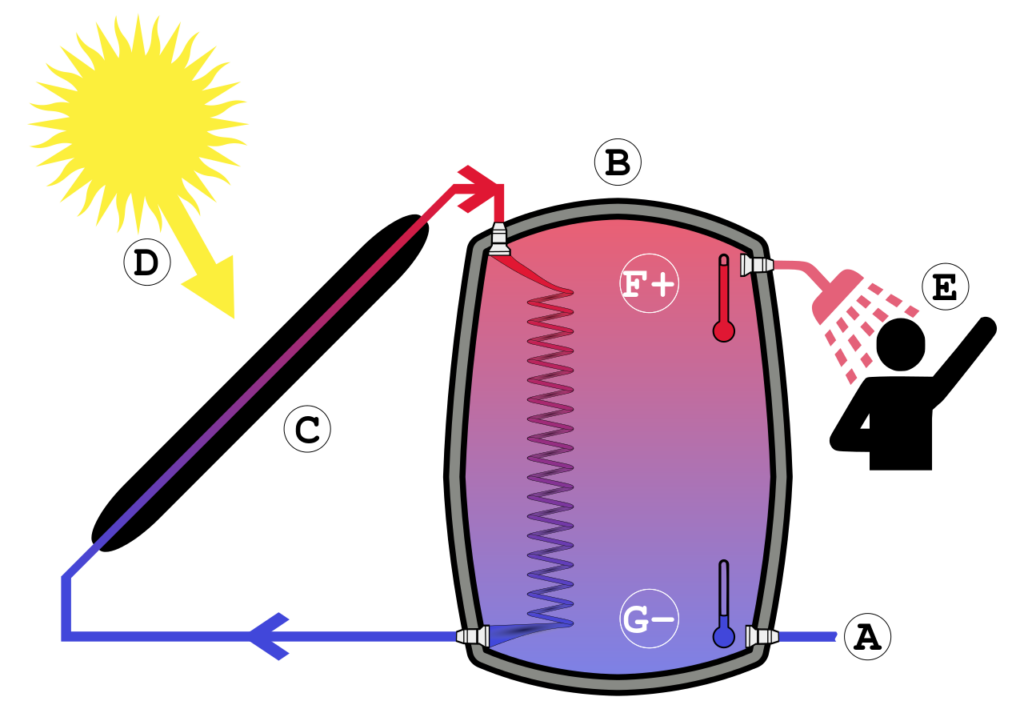
This type of installation also enables year-round production of domestic chilled water in summer and hot water in winter. This system is a good investment over the long term as it reduces the payback time and optimizes the system.
Different solar thermal air conditioning cycles
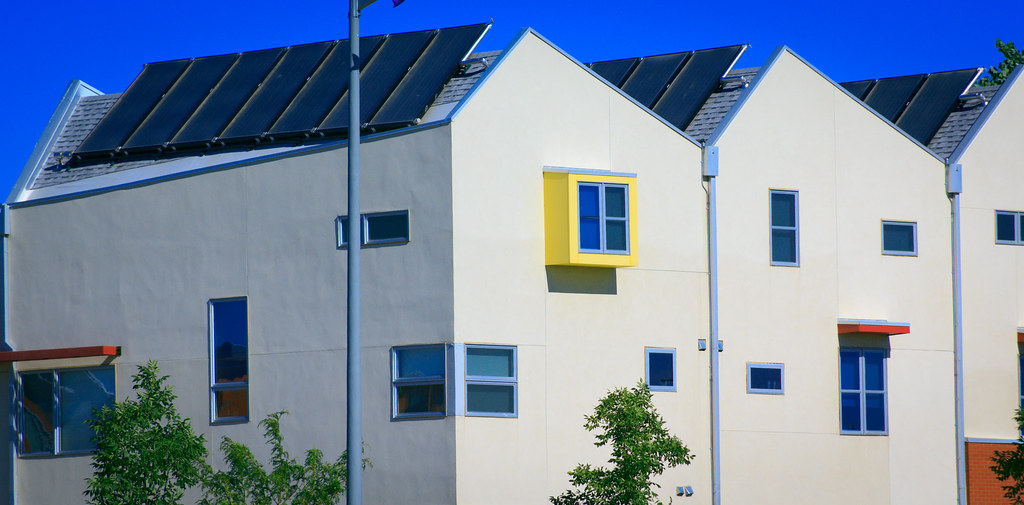
It is essential to know that several types of solar thermal air conditioning exist. Differentiation can be made of absorption or adsorption cycle, or open or closed cycle. If you wish to take the plunge and equip yourself, only an expert in the field will be able to advise you on the best choice of the system according to your needs, your situation, the existing installation, and also according to your budget.
Absorption and adsorption: what’s the difference?
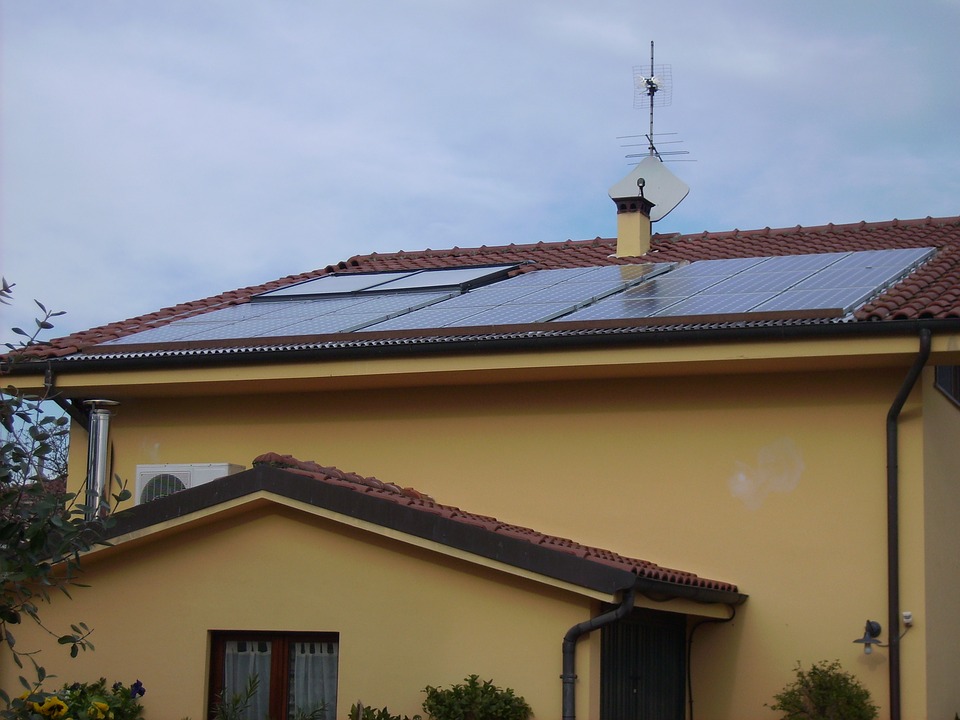
For both types of cycles, we talk about sorption systems. The difference between the two comes from the sorbent. In the case of absorption, the sorbent is liquid. In the case of adsorption, the sorbent is solid. In practice, this difference does not make much difference to your installation; the operation is almost identical.
The difference will be on the operating temperatures, the cost of the installation, the size and weight of the air conditioner. Neither is better than the other; a cycle will be more or less appropriate depending on the characteristics of the installation to be made.
The open cycle
The open cycle is a system where the refrigerant is consumed. It is water vaporized in the air, this water is not recovered, so it is called an open cycle. This open cycle is preferably used in the tertiary sector because it requires an air treatment system with high flow rates. This cycle is called DEC (for desiccant evaporative cooling).
To air-condition a room, the blowing air will be treated. It will first be dehumidified, then humidified by water vaporization. A physical principle is then exploited; the evaporation of water in the air makes it possible to reduce its temperature by a few degrees. The more the air is dried out, the more effective the cooling will be.
The closed cycle
The closed cycle includes the thermal compression, replacing the traditional electric compressor of a conventional air conditioner. This cycle is called tritherme because it requires three levels of temperature: a level of capture (the solar panels), a level of rejection to the outside air, a level of cold production for the room to be air-conditioned.
When the refrigerant fluid, charged as a sorbent, is heated, its pressure will rise naturally. It is, therefore, a thermal compression. Compression is vital in air conditioning, because it allows two pressure levels to be obtained, a low pressure (LP) and a high pressure (HP). The low pressure allows the heat to be captured from the room to be air-conditioned, thus cooling it, while the high pressure allows the heat captured to be rejected to the outside.
Advantages of solar air conditioning: environmentally friendly air conditioning!
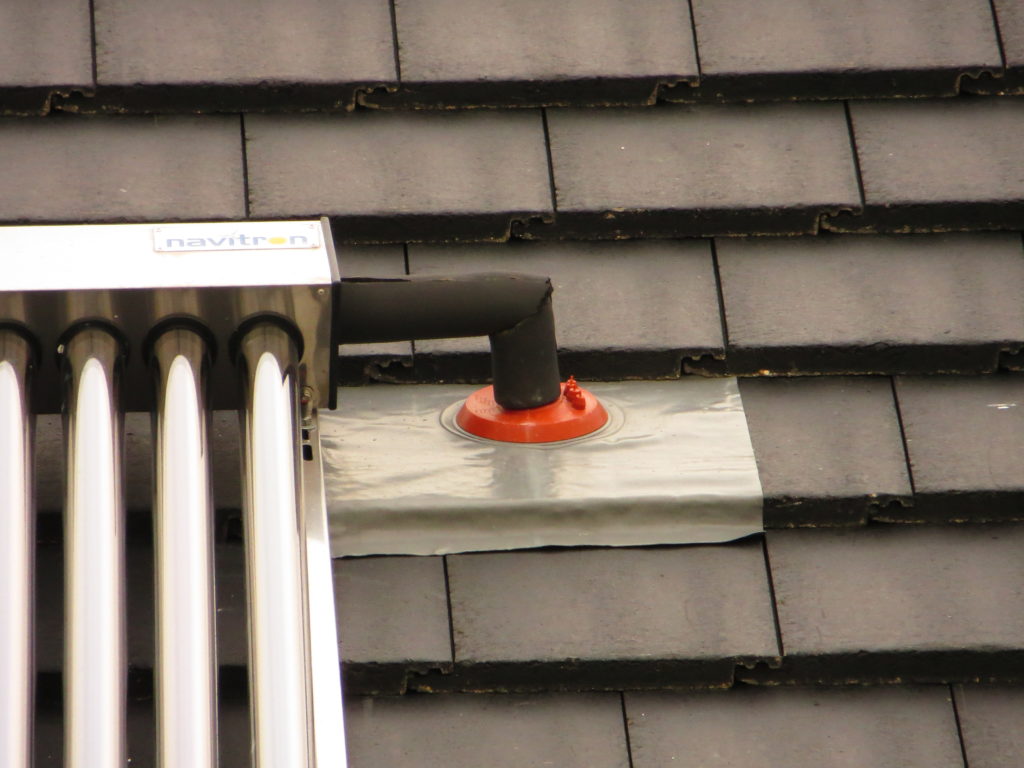
The apparent advantage of such air conditioning is to take advantage of the free energy provided by the sun. You, therefore, significantly reduce your energy consumption for the air conditioning unit. Solar air conditioning has the advantage of having energy production that coincides with demand, thus limiting recourse to energy storage and thus avoids unnecessarily raising the bill.
The heat produced can be used all year round to provide domestic hot water or to supply the heating network in winter. The multiplication of uses for the same panel reduces the payback time.
Disadvantages of an air conditioner with solar thermal panels
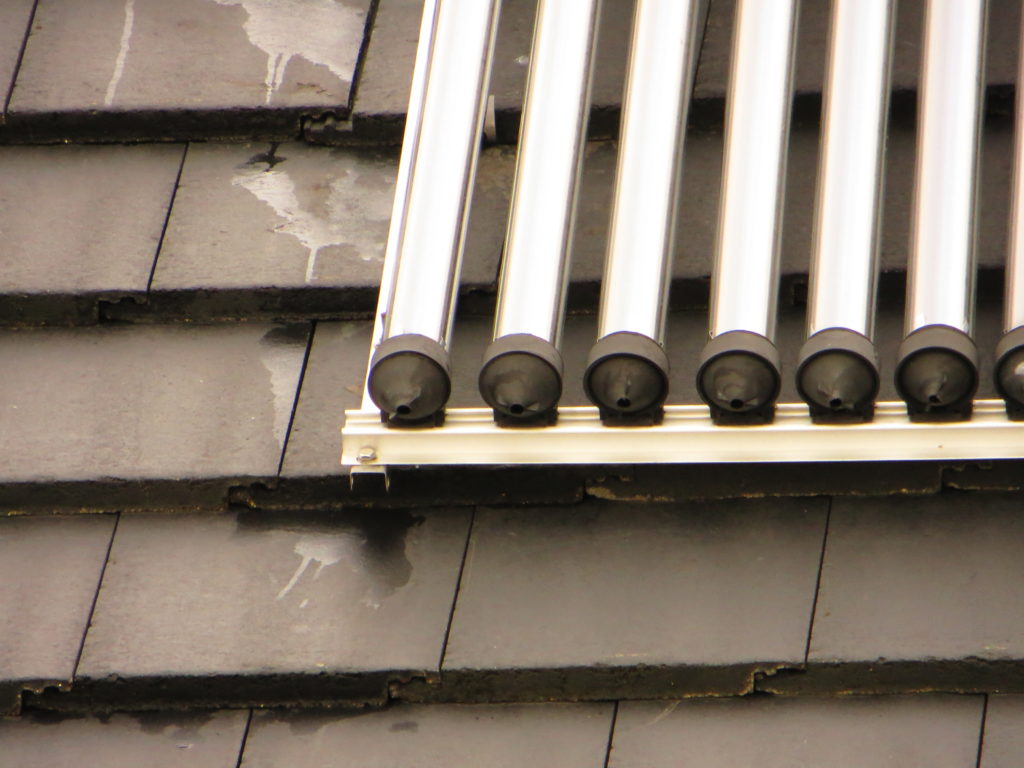
However, it is essential to point out the few disadvantages of solar air conditioning. The main problem of solar thermal air conditioning is the price of the air conditioner itself. As this technology is not yet widespread, prices are still very high.
Another major disadvantage is that these systems are preferably designed for large to medium powers (about 35 kW), but some manufacturers (SorTech, Invensor) market smaller air conditioners (at least about 8 to 10 kW), which are compatible with some single-family house installations. Besides, these are massive machines.
The intermittency of sunshine must be compensated for, by using thermal storage tanks and by using an electric or hydraulic boiler-type booster.
Installation of an air conditioner with solar thermal panels
A solar air conditioner is not as simple to install as a traditional air conditioner. It is important to call upon a professional who will be able to guide you towards the choice that best suits your needs, notably by carrying out a feasibility study. Indeed, these technologies are not adapted to all situations.
Unfortunately, there is not yet any sign of quality relating to the installation of solar air conditioners. On the other hand, for the installation of solar panels, quality signs do exist. For thermal solar panels, opt for a professional panel installer. Nothing guarantees their knowledge of solar air-conditioning, but a few design offices are specializing in the field.
You liked this post? Read more here: Criteria to Choose Your Type of Air Conditioner

